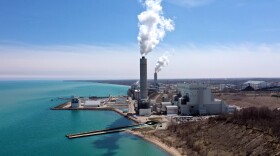Over the weekend, Germans gathered in central Berlin to protest the increase of xenophobia, nationalism and racism in their country. The AfD, or Alternative für Deutschland (Alternative for Germany), is the political party of Germany's extreme right, and was the focus of the protesters — whose numbers were estimated at over 200,000.
The AfD began as an anti-euro party with a desire to get off the common currency and return to the Deutschmark. After the large influx of Syrian and other Middle Eastern and African refugees into Germany in 2015, the party added an anti-immigration stance as well. In last year's federal election, the AfD gained enough seats in the Bundestag to become a leading opposition party. After Sunday's regional election in Bavaria, they gained even more strength.
"In Europe you have thousands of years of history where they fought against each other. Every 100 kilometers [about 62 miles] you had another state. And in every generation, you had a lot of people killed for that. It takes a long, long time to get different." - Richard Meng
During my three week journalist exchange program in Germany, sponsored by the RIAS Commission, I was able to interview a number of German politicians and journalists. Everyone I spoke to expressed dismay at the rise of nationalism in their country: Most Germans want peace and are vehemently and vocally opposed to anything in their politics that might resemble the Nazi regime.
Richard Meng is a 25-year veteran German journalist and journalism professor. We recently met at a café on Berlin’s Unter den Linden street, right near the Brandenburg gate — very close to where the protests this past weekend occurred. Meng is concerned about the rise of the far right, but he takes a long view:
You can also follow Bonnie North's journey and see additional photos through her blog, Radio Free Bonnie, that she was writing on location.






